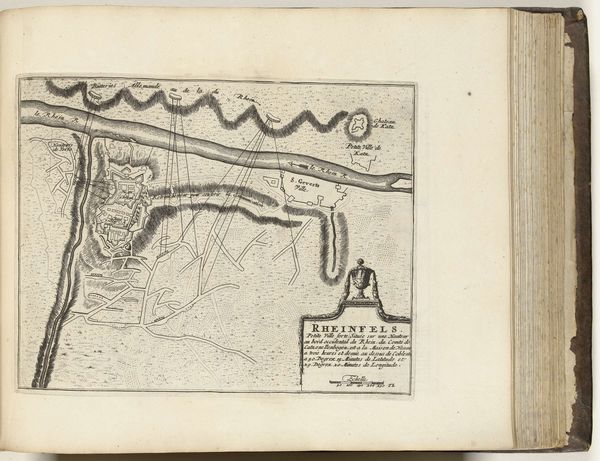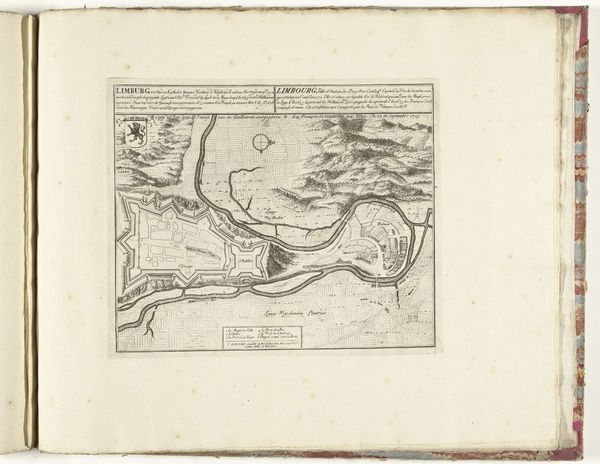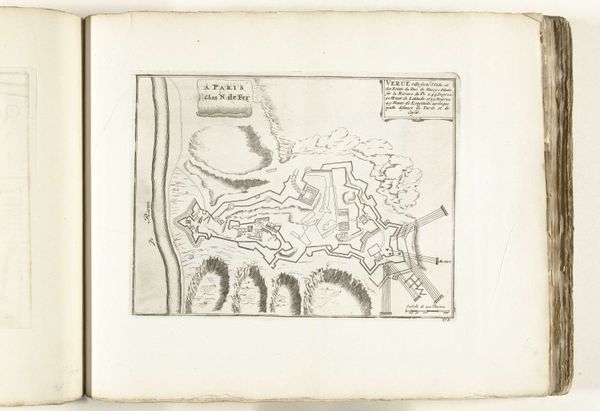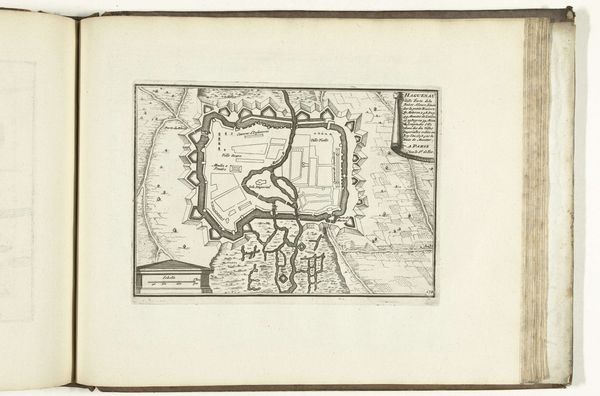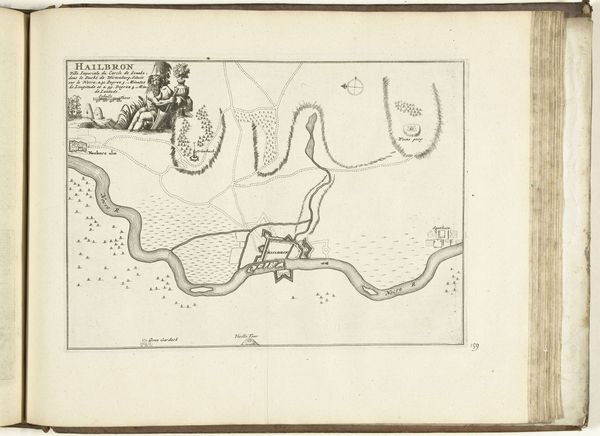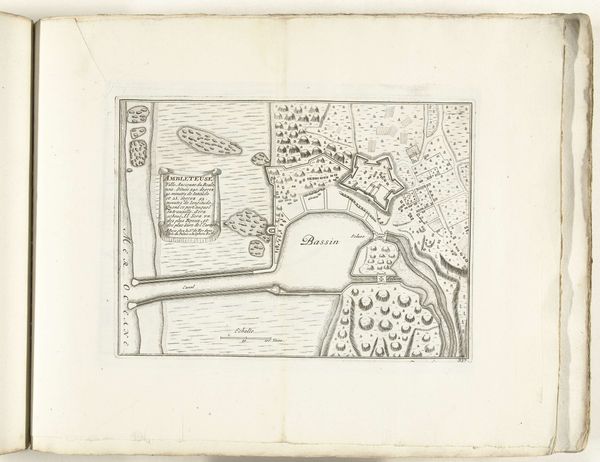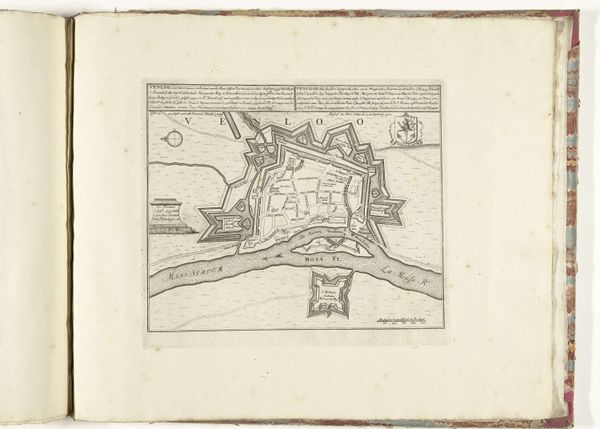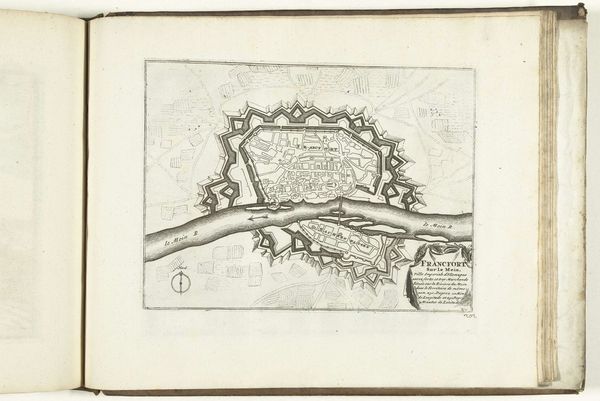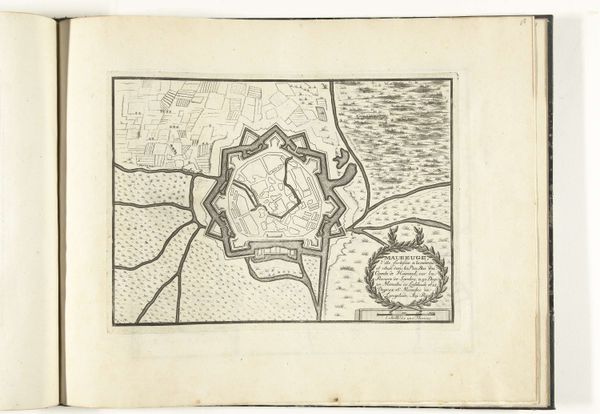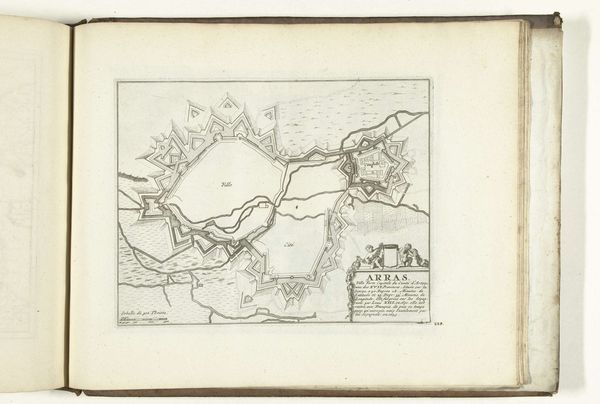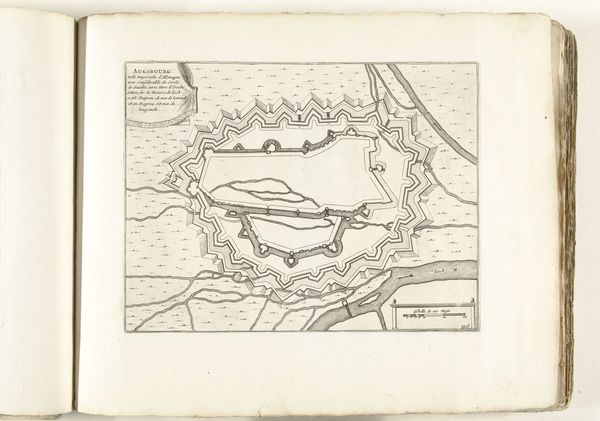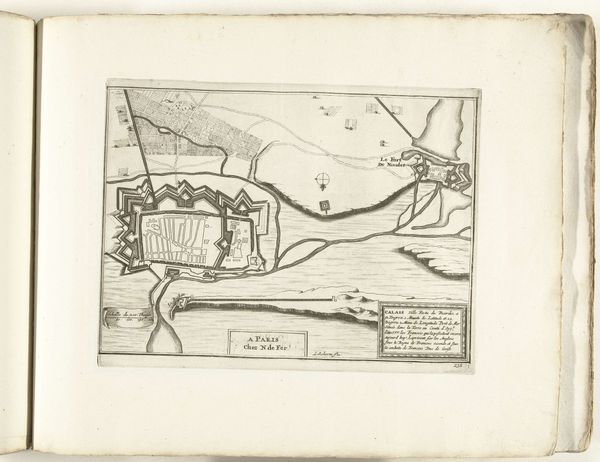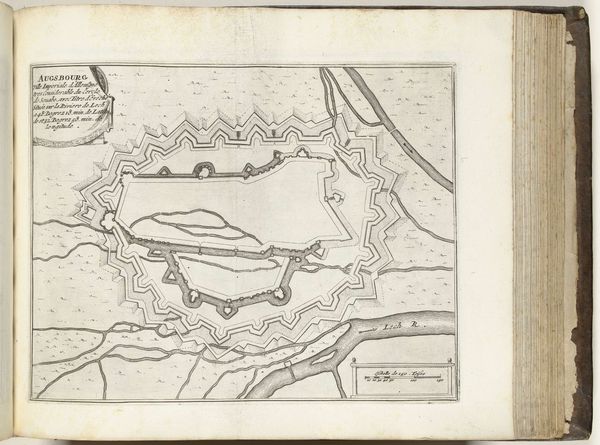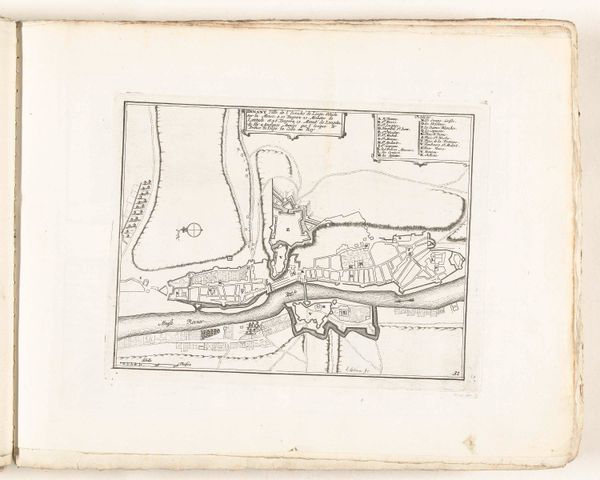
drawing, print, ink, engraving
#
drawing
#
baroque
#
pen drawing
# print
#
ink
#
geometric
#
genre-painting
#
engraving
Dimensions: height 207 mm, width 262 mm
Copyright: Rijks Museum: Open Domain
This print, made in 1693 by an anonymous artist, depicts the relief of Rheinfels. Its fine lines come from the etching process. The artist would have coated a metal plate with a waxy, acid-resistant substance, then drawn through it with a sharp needle. After bathing the plate in acid, the exposed lines would be eaten away. Ink was then applied to the recessed lines, and the image transferred to paper under great pressure. This method allowed for relatively quick reproduction, crucial for disseminating military intelligence across Europe. Note the extraordinary amount of work involved in achieving this level of detail. The cross-hatching and stippling, meant to convey topography and texture, required tremendous skill and patience. The print underscores the connection between artistic technique and social context. It is a reminder that even seemingly straightforward images are the product of complex processes, reflecting both aesthetic choices and the demands of their time. It challenges our conventional definitions of what constitutes art and craft.
Comments
No comments
Be the first to comment and join the conversation on the ultimate creative platform.
